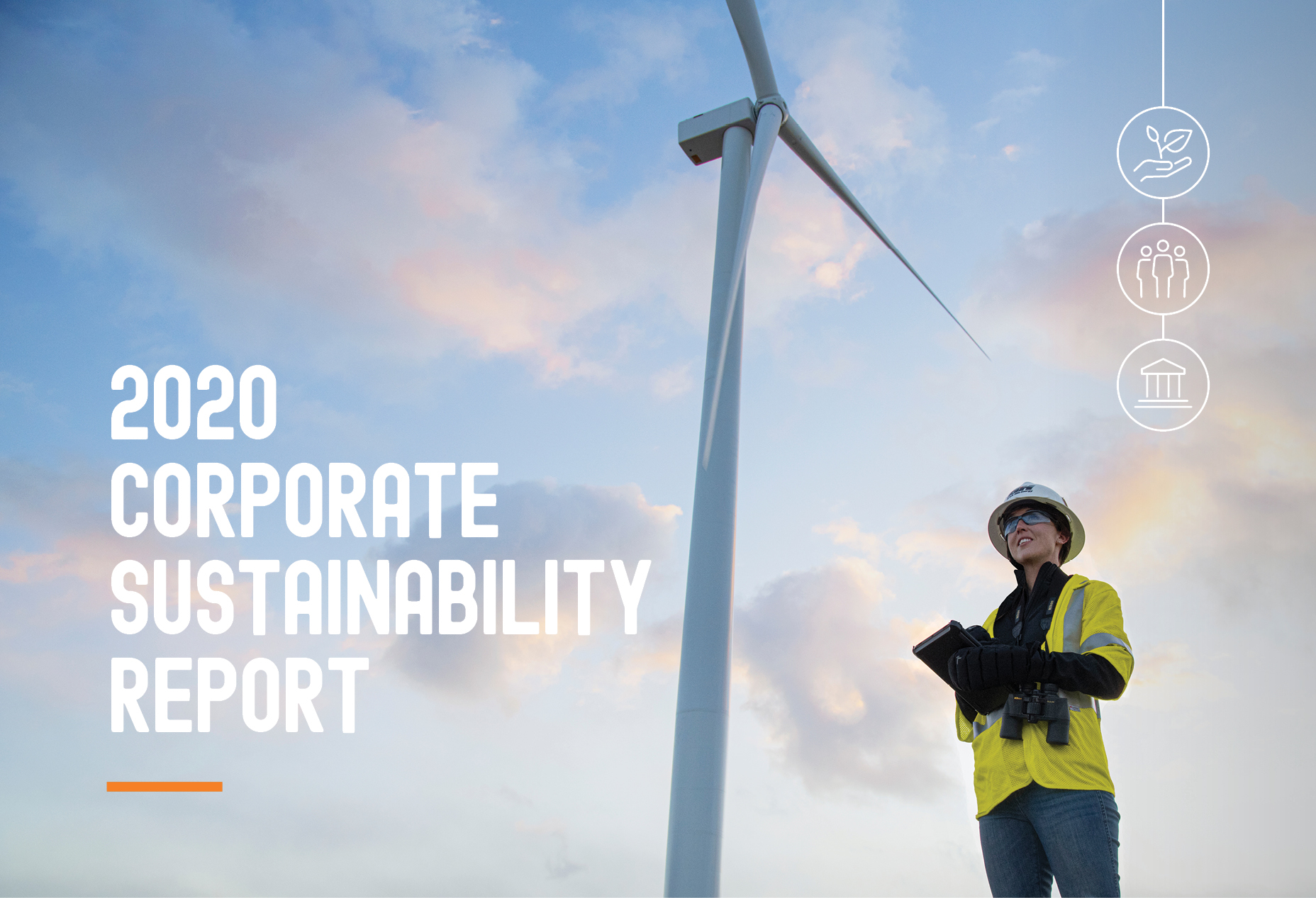
PUEBLO, Colo. – Aug. 31, 2021 – Black Hills Energy announced the release of its 2020 Corporate Sustainability Report, showcasing the company’s environmental, social and governance performance and its progress on major projects and climate goals. The report also highlights how in 2020 – during a historic and challenging year – the Black Hills Energy team worked together to quickly adapt to the uncertainty of the pandemic, to safely serve its communities and reliably supply essential energy to customers.
“Whether delivering energy to homes and businesses, helping customers in times of need, providing resources to our employees or partnering with communities, we recognize we are much more than a utility, we are an engaged corporate citizen,” said Vance Crocker, Black Hills Energy’s vice president of operations. “We consider it a privilege to provide electricity and natural gas to nearly 1.3 million businesses and families across our eight-state service territory and we are committed to doing so in a way that supports our values and our responsibility to customers, communities and planet.”
Throughout 2020, Black Hills Energy advanced its climate goals for its electric and natural utilities, achieving a 30% reduction in corporate greenhouse gas (GHG) emission intensity since 2005 for its electric utility operations and a 33% reduction in natural gas emissions. The company’s corporate sustainability strategy calls for a 40% reduction in GHG emissions by 2030 and 70% by 2040 for its electric utilities, and a 50% reduction in natural gas emissions by 2035.
In 2023, the company’s Colorado electric utility will add 200-megawatts (MW) of utility scale solar to its system through its Renewable Advantage program. With this addition, more than 50% of the company’s Colorado electric generation mix will come from renewable sources, leading to a 70% emissions reduction by 2024, compared with 2005. This makes the company well-positioned to achieve the state’s objective of an 80% emissions reduction by 2030.
Key 2020 achievements include:
- Expanded clean energy offerings: The successful construction and on-time delivery in 2020 of the company’s newest wind energy facility, the Corriedale Wind Energy Project in Cheyenne, Wyoming, added 52.5-megwatts (MW) of renewable energy to the power grid. Today, 25% of the company’s total owned or contracted generation is made up of renewable wind energy.
- Advancements in renewable natural gas: With the fourth renewable natural gas (RNG) interconnection project placed into service in 2020, up to another 400 MMBtu per day of biogas has been added to the company’s natural gas supply.
- Community impact: The company’s direct economic impact totaled $1.38 billion in 2020 - a result of the company’s charitable giving, compensation for more than 3,000 employees, franchise fees, payments to suppliers, and property, sales and use taxes paid to communities within Black Hills Energy’s eight-state service territory.
- Customer support: The company provided $813,000 in funding through its Black Hills Cares program to respond to increased customer needs due to the impact of COVID-19, helping more than 2,500 families in need.
- Energy efficiency and conservation: Over $9.5 million in energy efficiency rebates to residential and business customers, leading to annual energy savings of over 30 million kilowatt-hours of electricity and 330,000 dekatherms of natural gas – enough energy to power nearly 3,900 homes a year with electricity and natural gas.
Black Hills Energy – 2020 Colorado highlights include:
- 296,000 electric and natural gas customers served in 119 communities throughout the state.
- $1.1 million in charitable giving including contributions and sponsorships for nonprofits, chambers and economic development organizations, United Way, energy assistance, in-kind donations, scholarships and investments in trees.
- 474 employees
- $265 million in direct economic impact including charitable impact, franchise fees, employee compensation, payments to suppliers, property tax, sales and use taxes.
Learn more at www.blackhillsenergy.com/sustainability.